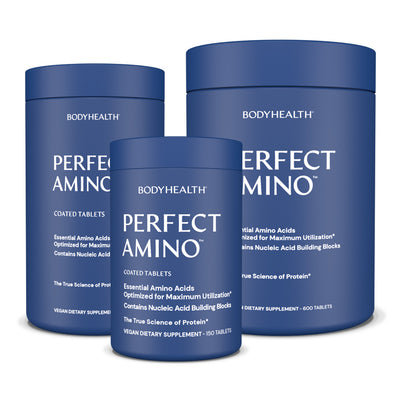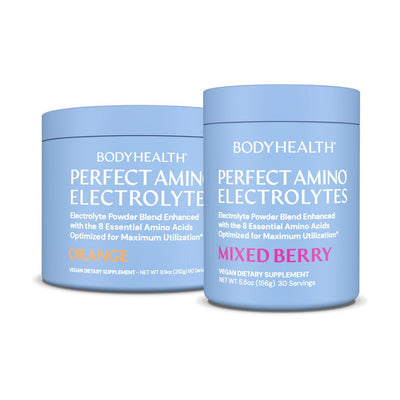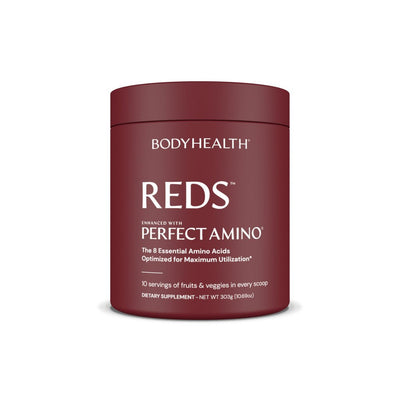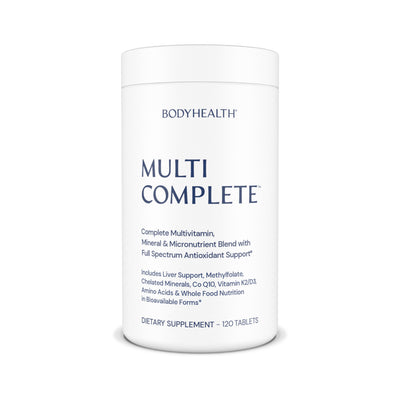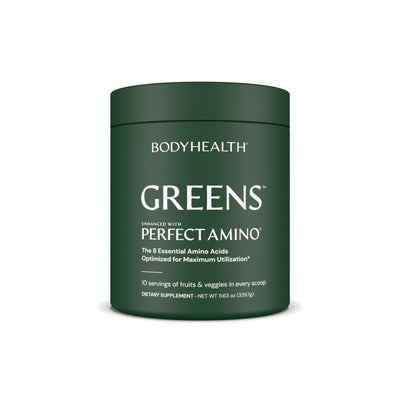Achieving Peak Athletic Performance
by Dr. David Minkoff June 19, 2023 5 min read

This is the first issue in a series on Extreme Athletes, those who push themselves to the max to achieve their goals and, possibly, greatness.
While all of this applies to everyone, it very much applies to those trying to achieve their peak performance in fitness and athletics, while staying healthy overall.
In this series we’ll cover runners, bikers, triathletes, bodybuilding and both the problems they face on a daily basis, and what can help them take advantages they already hold, and make them even better.
We’ll be diving into subjects such as:
- How to find weak spots in overall health and optimize them
- Maximizing mitochondrial output for energy & performance
- Preventing overtraining & burnout
- Improving recovery for peak performance
- The mind of a champion
- Preparing for a marathon or triathlon
- Heart health for extreme athletes
- Hormonal health for extreme athletes
- And more…
In this first article we’ll start by going over one of the key, over-riding aspects to maximize not only the ability and performance of an elite athlete, but of anyone.
Because, when you put your body through as much stress and pressure as an athlete does, every one of your organs, muscles, nerves, bones, hormones, etc., all play a part.
And, while any weak links will bring down the rest, improving any weak spots in health will help increase the energy production and performance of the overall.
Let’s dive in.
THE SPECTRUM OF ATHLETIC PERFORMANCE
Health and fitness levels exist on a spectrum.
On one side we have many body organ systems not functioning well, the person is in bed, has low energy, and the body is doing very badly.
And on the other side we have excellent health, vitality, and energy.
Add to that genetics and a very high work ethic, and we have an elite athlete.
And this is important. If their willingness to work isn’t there, they may have a gift, but they won’t be able to hit their maximum potential.
But the key here is, can their body, can their cells, make energy?
If they can make high levels of energy, we could have an elite athlete. If the body can’t make energy well, we get organ trouble, sickness and general low health.
This seems simple, but it truly is key. Everything hinges on energy production.
Now, this isn’t how much energy they have. Maybe they have lots of energy because they just had a so-called “energy drink.”
Now they have ENERGY!
And then they crash.
Because that’s not real energy.
That’s not making energy.
Making energy, producing energy, has to do with the mitochondria in our cells, the actual energy production units in the body, and how many of them there are per cell, and how well they’re performing.
When we have a long-distance runner, it’s part fuel, of course, but what is the state of their mitochondria, the tiny organelles in cells that take that fuel and use it to produce the energy that powers their body?
And what is the state of their nervous system, which must be able to react fast and continuously?
What is the state of their liver, which plays a key role in cellular performance?
How about their electrolyte levels, the conductors along which electrical charges in the nerves flow?
All of these things play a part, and to the degree we can raise them, whether it's a runner, biker, bodybuilder, sports athletes, martial artist or whomever, we can increase their performance.
Actually, even when they’re small tweaks such as finding any deficiencies in vitamins, amino acids, minerals, recovery, or addressing any possible infection or hormonal disruption can make a big difference in performance.
Here's an example.
There was a triathlete many years ago, I won’t mention his name as I haven’t asked his permission, but he was an earlier Ironman winner and he was back several years later to race again at Kona.
And I was giving him PerfectAmino, which at the time we called BioBuild.
So he had been taking this for about three months, doing his training, and he had a bike ride he would do which he used to test himself. It was a 140 mile bike ride around the island and he knew that if he did it in a certain time, he could win the race.
So he went for this ride. And then that night he called me in an absolute panic. You see, he was sure there was something else in the PerfectAmino and that he was going to be disqualified.
I assured him there wasn’t, but he knew there must be, because he had done the ride 30 minutes faster than his earlier best.
Anyways, he ended up winning in his category.
But this underscores my point. When we have an elite athlete, wherever we can find something to improve, wherever there is a deficiency, we can make a significant difference.
In his case I didn’t do any tests on him beforehand, so I can’t say exactly what was deficient internally, whether mitochondria, liver, nervous system, enzyme activity, etc., but it was essentially an amino acid deficiency.
And taking PerfectAmino filled this gap, thus raising all areas including energy production.
But energy is key. Can their body produce energy?
To the degree it can, organs, cells, mitochondria, their nervous system, their hormones and gut bacteria are in good working order.
To the degree they can’t make energy, have low energy, these same factors need correction.
And it works out that what helps the elite athlete and the sick individual alike are the same things, we just find more things to correct when someone is in bad health and less to correct when someone is in good health.
But wherever we can find a deficiency, hormonally, nutritionally, etc., in an elite athlete, we can make quite a difference.
And the first thing an elite or extreme athlete should do to improve performance, beyond taking the full spectrum of vitamins and minerals, taking their PerfectAmino in quantity, eating whole foods, and getting rest and proper recovery is testing:
- Get your serum protein levels tested and any other blood tests to see if there is any bacterial infection in the body. If there is, it’s burning up your energy and slowing you down and needs to be corrected.
- Measure your RHR, Resting Heart Rate, and your HRV, Heart Rate Variability. Resting heart rate should be low, and heart rate variability should be higher. If they’re reversed, your body is having trouble with something and we need to find out what it is: infection, deficiency, over-training, lack of recovery time or sleep, too little nutrition or amino acids — something. Find it.
- Test your hormones to ensure they’re balanced and at proper levels.
- Check your inflammatory markers, liver health, heart health, kidney health. All of these can influence performance, speed, energy production, agility and mental concentration.
This is the first thing to increase overall performance.
Wherever in the above we find something out, when we fix that, we can get significant increases.
Remember, in some events, a half a second makes all the difference.
Read the next article in the seriesArticles by Health Topic
Get “The Search for the Perfect Protein”
by Dr. David Minkoff
Signup for the BodyHealth Newsletter and get a FREE digital copy of "The Search for the Perfect Protien" by Dr. David Minkoff and discover the key to weight loss, depression, fatigue, insomnia, and osteoporosis!
*These statements have not been evaluated by the Food and Drug Administration. These products are not intended to diagnose, treat, cure, or prevent any disease.
